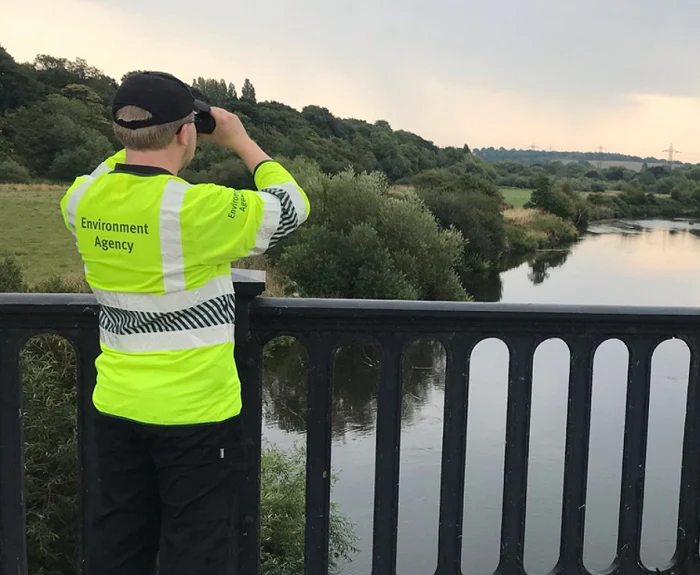

There have been five consecutive months of below average rainfall across all geographic regions in England and above average temperatures (Image courtesy: Twitter/@EnvAgencyMids)
The United Kingdom’s Environment Agency on Tuesday agreed that all of the South West of England is now in drought following some of the driest conditions in nearly 90 years.
Bristol, Somerset, Dorset, south Gloucestershire and parts of Wiltshire (referred to in the Environment Agency as the Wessex area) have all today moved to drought status. Earlier this month Devon, Cornwall and the Isles of Scilly were also declared to be in a drought.
The triggers used to confirm today’s move to drought status for the area include the hydrological position (including rainfall, river flows, groundwater levels, reservoir levels, and the dryness of soils), as well as the impacts these conditions have on the environment and abstractions.
While the area has had some rainfall over the last 2 weeks, this has not been sufficient to compensate for the long dry period in recent months, but by waiting until now to declare a drought, it has given our response team time to consider the effects of the rainfall.
This change in status to drought is a change in categorisation, indicating the impact prolonged dry weather is having primarily on the environment and in addition on water resources. Essential water supplies are safe, but Defra and the Environment Agency are urging water companies to continue with their precautionary planning to protect essential supplies in the event of a dry autumn.
In the Wessex area, the effects of drought are resulting in low river flows impacting the environment in and around rivers. So, we will work with companies and individuals who have abstraction licences allowing them to take water from rivers and groundwater boreholes, and with the public, to try to lower demand and therefore reduce the impact on the environment.
While there is an important role for people to sustainably manage their usage, the UK government expects water companies to act to reduce leakage and fix leaking pipes as quickly as possible and take wider action alongside government policy.
“Despite some heavy rain over the past 2 weeks, it has not been enough to refill our rivers and aquifers,” said Chris Paul, the Environment Agency’s area drought lead.
The Environment Agency’s water situation national report for July provides a picture of the rainfall, soil moisture deficit, river flows, groundwater levels and reservoir levels over the last month. The report highlights that it was the driest July across England since 1935, with monthly rainfall totals for the majority of river catchments classed as exceptionally low for the time of year.
There have been five consecutive months of below average rainfall across all geographic regions in England and above average temperatures. River flows, groundwater levels and reservoir stocks all decreased during July.
With Wessex now declaring a drought, 11 of the 14 Environment Agency areas in England are now in drought status.
Prime Minister Narendra Modi on Tuesday held a telephonic conversation with Union Home Minister Amit…
Prime Minister Narendra Modi landed in Jeddah on Tuesday for a two-day State visit to…
Lauding the "deep connection" between the United States and India, US Vice President JD Vance…
Indian Minister of Power and Housing Affairs, Manohar Lal Khattar, visited the Arun-III Hydel Project,…
The body of the late Pope Francis will be transferred to St. Peter's Basilica on…
The case of Baloch human rights activist Dr Mahrang Baloch has been officially accepted for…